Rosalind Wiseman's Blog, page 11
March 5, 2020
More Than A Virus: How To Stop The Racism and Xenophobia Coronavirus Brings Up
Photo via Barry Lewis/In Pictures via Getty Images
More Than A Virus:
How To Stop The Racism and Xenophobia Coronavirus Brings Up
While we have all been receiving daily informational updates about the Coronavirus (COVID-19), we are staying focused on the contextual ramifications. We cannot lose sight of how people who are falsely associated with the disease’s origins are being cruelly teased.
We were recently visiting a school and leading a class when a 5th-grade Asian American boy broke down sobbing because another student teased him; telling him he was going to die of Coronavirus. When we asked the other Asian American students we work with, most of them reported having similar painful experiences.
For many reasons, it’s completely understandable to be anxious about how this virus is impacting so many aspects of our lives, but how can we help prevent and respond to the misinformation and xenophobic bullying while Coronavirus is a constant topic of conversation and anxiety?
And, if you have children, you can assume that they have heard a joke or seen an insult scapegoating Asian people generally and possibly specific Asian and Asian American students at their school. Don’t wait to talk to your children until there’s a problem.
Have a brief conversation (unless your child wants to talk longer) that conveys the following:
When things happen like this virus, it’s common for a group of people to be blamed for it. With the Coronavirus that blame is directed at the country where it was first discovered, China. When you see or hear “jokes” about Chinese people or other Asian people and this disease, know that it’s wrong and goes against what we value in this family of upholding people’s dignity.
I am asking you to think about even a small action you can take to make clear to the people around you that you don’t support or agree with these jokes or comments. You can be clear with the person who is the target of these comments that you don’t agree and you will support them.
I know this can be difficult so if you are hesitant, let’s talk about what you’re worried about and come up with some strategies so you feel more prepared.
Remember these moments are precisely the times where communicating what we stand for is forever made meaningful in our children’s hearts and minds.
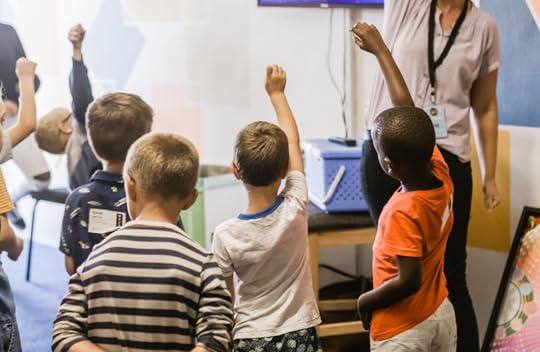
Resources
Teaching Tolerance – Speaking Up Against Racism Around the New Coronavirus
New York Times Parenting – How to Talk to Kids About Coronavirus
NPR – A Comic Exploring The New Coronovirus
This originally appeared in our newsletter Communiquette.
Recent Posts
More Than A Virus: How To Stop The Racism and Xenophobia Coronavirus Brings Up
Do Young People Care About Voting?
Meet the 2020 Cultures Advisory Council!
Get the Cultures of Dignity Newsletter!
Email:*
The post More Than A Virus: How To Stop The Racism and Xenophobia Coronavirus Brings Up appeared first on Cultures of Dignity.
March 2, 2020
Do Young People Care About Voting?
In 2020, local and national elections are being held around the country and many of us are thinking about the political process. Despite historic gains in voter turn for young adults, we continue to hear stereotypes about young people’s political apathy.
We asked young people around the country to share their views on the political process and if voting was important. Even for those who aren’t 18 and therefore can’t vote, their opinions are heartfelt and contradicts the perception that young people aren’t engaged in the political process.
Below are their words.
During the 2016 general and 2018 midterm elections, I was unable to vote. This was pretty frustrating as I wanted to be able to participate and potentially make a change within our civic system, especially on the specific policies that I feel passionate about. I’m very excited to be able to vote this year and to finally be able to have that experience, in fact, I’ve already sent in my ballot for the primary!
-Asher, 18
My family and I gained American citizenship two years ago, and that is definitely one of the reasons why voting is so important to me. For 10 years I watched my parents be politically active yet still not have the opportunity to vote for what they believe in. Now that I’m an American citizen and of age, I really appreciate that I am able to voice my opinions in the government when a lot of people can’t.
– Lara, 17
I’m voting this year because I remember being a kid and wanting so desperately to have a say in the world around me. I think our political climate has made Americans very cynical, but I still want to remind myself and others around me that voting is one of the best ways an individual can create change.
-Sara, turning 18
I am voting because many people around the world don’t have that right and I am fortunate enough to live in a country where we have the freedom to vote. I want to make sure I use my right to vote to create change and express my opinion.
-Ava, 18
Voting gives me a vessel to represent what I think is morally just, not only for myself, but for my greater community. It is a privilege that I will not take for granted.
-Nikki, 20
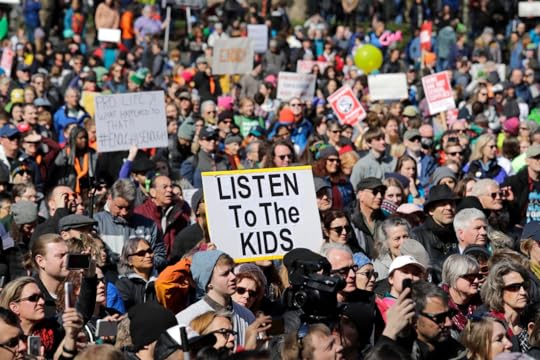
In the upcoming elections, people are emotionally charged when it comes to supporting a candidate. Though I cannot vote, I believe it is more important to support a candidate whose policies align with your own values rather than supporting the person you just think will win. Our Democracy is not able to function unless each vote is cast to reflect that person’s beliefs.
-Charlie, 16
I am voting this year, and every year in the future, because democracy only works when those who can participate do participate. I also recognize that not everyone has the right to vote, so voting is my most important civic duty.
-Gabriella, 18
I am not old enough to be able to vote during this years’ elections, but I am still showing up to be politically active and stand up against hatred and injustice.
-Rocco, 16
I care about voting because every vote counts, and I want to have a say in the leadership and policies that represent me and the country I live in. Voting is one of the simplest yet most effective ways that I can give a voice to issues that need to be heard.
-Taylor, 19
Filling out a ballot for the first time was a thrill! Voting is something we need to do more of as the younger generation because the issues on ballots pertain to us much more than they do for adults and it’s sad that so many people waste this opportunity.
-Micah, 18
Questions for these young people? Email curious@culturesofdignity.com
Learn about the different ways we work with young people at Cultures of Dignity:
STUDENT VOICE
Recent Posts
Do Young People Care About Voting?
Meet the 2020 Cultures Advisory Council!
Meet Sara! Cultures of Dignity Intern
The post Do Young People Care About Voting? appeared first on Cultures of Dignity.
February 26, 2020
Meet the 2020 Cultures Advisory Council!
The Cultures Advisory Council is a select group of 18-24 year-olds from across the globe that help advise, think about and help spread our work. The Cultures Advisory Council serves as boots on the ground in different communities, thinking and working on issues that impact young adults’ lives – from social media and technology, identity, gender, social dynamics to politics.
The Cultures Advisory Council is a space to discuss issues that matter to young adults around the world and learn from each other.
Learn more about each of the members below!
Recent Posts
Meet the 2020 Cultures Advisory Council!
Meet Sara! Cultures of Dignity Intern
When Teachers Are Stressed, Students Are Stressed. This Program Is Trying To Help Teachers Cope

Nikki Schlegel
Nikki is a sophomore at Grinnell College with passions for psychology and mental health equity.

David Nevins
David is a senior at Lafayette College studying International Affairs and French. He is cares about sustainable development and enjoys racing for the Lafayette ski team.

Asher Edelman
Asher is a freshman at Wesleyan University, loves listening to music and doing graphic design/art, and is passionate about reducing stigma around mental health and therapy in schools, as well as establishing better support systems for students

Gabriella Spina
Gabriella is a high school senior, studying public policy next year, and always trying new vegetarian recipes!
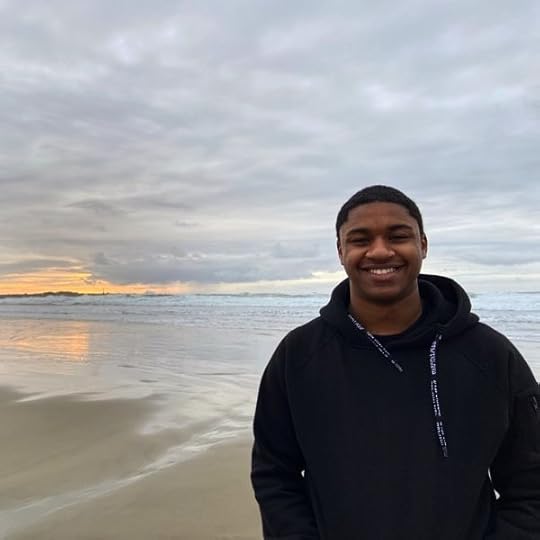
Tré Garnett
Tré is a third-year student at the University of Oregon studying his two favorite things: political science and martial arts.

Taylor Sandal
Taylor is a junior at Colorado State University studying Journalism and Media Communications, and is passionate about music and sustainability.
Learn more about how we work with young people
STUDENT VOICE
The post Meet the 2020 Cultures Advisory Council! appeared first on Cultures of Dignity.
February 12, 2020
Meet Sara! Cultures of Dignity Intern
Meet Cultures of Dignity’s newest intern!

Cultures of Dignity: Tell us a little about yourself!
Sara: I’m currently a junior at Skyline High School, where I’m a part of the theatre program, as well as the Model UN team, and Student Council. If I have some free time, I enjoy reading or spending it with my friends and family.
Why are you working with Cultures of Dignity this summer?
I am lucky enough to come from a school district that really values student voice, and it has opened so many doors for me, and given me so many opportunities like this one. I want to make sure that every student has access to those same opportunities so that they can truly get the most out of their education.
If you could have any superpower what would it be?
If I could have any superpower, I think it would be shapeshifting. It’s definitely the most versatile superpower, and that makes it the most useful.
What projects will you be working on with Cultures of Dignity?
I will be helping Cultures of Dignity with editing content like the Owning Up curriculum, as well as doing research projects to help improve our education system.
What is an issue you see in schools you want to fix?
It’s definitely very important to me to make sure that everyone has access to quality education, no matter where you grow up. Education is the key to so many doors, and your background should not prevent you from accessing any of them.
Recent Posts
Meet Sara! Cultures of Dignity Intern
Send a Card to a Friend Day!
Meet Chesimon! Cultures of Dignity Intern
Learn about how we work with young people:
STUDENT VOICE
The post Meet Sara! Cultures of Dignity Intern appeared first on Cultures of Dignity.
When Teachers Are Stressed, Students Are Stressed. This Program Is Trying To Help Teachers Cope
This piece originally appeared on CPR News here.
When Teachers Are Stressed, Students Are Stressed. This Program Is Trying To Help Teachers Cope
By Jenny Brundin
So you’ve got 30 seventh graders in front of you. But something’s off today. One announces that today’s lesson “sucks.” Two shut their hoodies so tight only their noses show. One kid has her head on the desk. Another two are playing Fortnite on the sly. One just gets up and walks out of the room.
Here’s a little known secret: There are times when teachers are so angry or frustrated or bewildered by their hormonally-charged students, the only thing they want to do is act the age of their students. Maybe roll their eyes, raise their voice, say something sarcastic. And when a teacher loses it, the stress in the whole classroom goes up.
Chronically stressed teachers mean stressed kids — classrooms full of kids with higher levels of the stress hormone cortisol, according to one study. Significant numbers of teachers also experience secondary traumatic stress.
The job of a teacher is unrelenting. Most teachers work between 60 and 80 hours a week.
“Teachers are ‘on’ from the moment they walk in the door to the moment they leave, making instructional choices, classroom management choices, getting ready for the next day, adjusting for their lessons,” said Katrina Fernandez with the Adams 12 Five Star District northwest of Denver. “It’s a nonstop occupation. If you don’t have good self-care practices, it can be a lot to manage within a day.”
But here’s the problem: Not a lot of teachers feel they can ask for help.
“Teachers feel like they’ve always got to get it right and sometimes we don’t even know what ‘it’ is and they feel like they can’t make mistakes or people are going to be yelling at them, parents are going to get mad at them,” said Rosalind Wiseman, co-founder of Cultures of Dignity, which encourages communities to shift the way they think about children and teens’ emotional and physical wellbeing.
“What we’re asking teachers to do is really extraordinary and they need support and help and expert advice,” Wiseman said.

Gary He/AP Images for Unilever Tween expert Rosalind Wiseman talks to parents at the Unilever Tween Confidence VIP event, Tuesday, Mar. 30, 2010 in New York.
Enter “Owning Up,” a social and emotional curriculum authored by Wiseman in collaboration with children and teens. Lots of schools experiment with curricula to teach kids social and emotional skills. But what tends to happen is, teachers are thrown in front of a group of middle schoolers and it’s assumed they know what to do. “Owning Up” is distinctive in that it starts with training teachers, helping them learn to identify and manage their own emotions.
On a recent weekday Wiseman, who is based in Boulder, is training a roomful of teachers at Thunder Vista P-8 in Broomfield. They’re working from the Owning Up curriculum, talking about when teachers have a fraught relationship with a student.
Wiseman tells the teachers that when students are resistant or defiant, teachers may feel embarrassed, maybe even a little paranoid that their authority is being undermined. There is an inclination to say, “‘I am the teacher, you must respect me!’” she said. That’s common.
Teachers in the workshop review how not to resort to demanding respect and instead learn how to probe more deeply and how to create a culture of dignity in classrooms and with parents. Respect, says Wiseman, is a problematic concept for teens because they correlate it with obedience and compliance no matter how the other person is treating them. The group discusses how to stay calm with angry parents and shift the conversation to working together to help the child.
They talk about what makes them lose their cool in the classroom and ways to take care of themselves emotionally, mentally, and physically.
“They have to be attuned to their feelings and emotions and be able to articulate that to a classroom full of middle school kids or elementary school kids,” the district’s Katrina Fernandez said. “And when teachers start to feel overwhelmed and stressed, that can definitely seep into classroom culture.”
“It’s learning how to say to kids, ‘I’m feeling really stressed out right now for whatever reason. How about everyone open their books, you’re going to read for five minutes. I’m going to get myself back in a really good place so we can move on,’” principal Teresa Benallo said.
It’s about building relationships with students “and caring about them and they know that you care about them. Kids will do anything for you when you’ve established that,” Bernallo said.
Teachers do exercises with each other — which they’ll eventually do with their students. The idea is to bring the language of emotions and feelings front and center into the classroom. It’s a chance, Fernandez says, for kids to reflect on what’s happening in their inner lives, practice new skills, and then follow up.
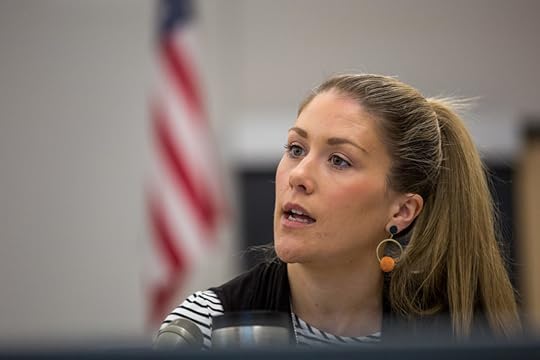
Hart Van Denburg/CPR News Thunder Vista school teacher Katie Leighton in her class Jan. 28, 2020
Katie Leighton greets each sixth-grader individually as they file into her classroom one Tuesday morning.
That lets her know she sees them and values their presence. She transitions quickly into an Owning Up lesson.
Half the class is instructed to go into the hallway. She instructs the other half in the classroom to talk to their hallway partners when they return — to talk for two whole minutes about a pet they have or wish they had.
One girl starts off excitedly, telling her listening partner that she wants a dog, a Pomeranian-Shih Tzu mix.
“I love Pomeranians. I would want it to be fluffy,” she tells her partner, who is nodding and smiling.
But at about the 30 second mark, the partner suddenly tunes out and looks away, bored. In fact, that’s happening all around the class.
The Pomeranian fangirl looks kind of uncomfortable. Her two minutes aren’t up. Her voice gets tentative, halting and quiet. She tries in vain to engage her partner, to get her interested again.
At two minutes, Leighton asks the kids what the talkers noticed about their listening partners.
“They got quiet and wanted to go to sleep,” says one kid.
Then Leighton reveals her secret instructions to the ‘listening” partners in the hallway before they came back in: they were told to stop listening at the 30 second mark. They were supposed to turn away from their partners.

Hart Van Denburg/CPR News Thunder Vista school teacher Katie Leighton with students in her class Jan. 28, 2020.
Leighton asked the listeners and speakers how it felt. Some boys say that happens all the time, so they just turn around and do the same thing. The girls don’t think it happens that often. But the kids agree, the experience was uncomfortable and confusing. They felt awkward. Kids talk about the difference between hearing and really listening to someone, how not to tune somebody out, and how to react when someone does that to you.
The bell is starting to ring — there’s just enough time for Leighton to lead her students through a “triangle” breath exercise. It’s a simple relaxation technique for kids. They breath in for three counts (they can mentally trace one side of a triangle), hold the breath for three counts, and exhale for three counts. It calms them as they head to their first academic class of the day.
The students seem to tune in easily to the feelings generated by the exercise.
Owning Up is partially written by kids.
Owning Up author Rosalind Wiseman said kids chose the topics like how to give and get advice, when are kids really joking, what happens if you’re slighted by a friend, why and what do you share on social media, and of course, “crushes, rejection and heartbreak,’” Wiseman laughs, adding, “we let them title the sessions!”
Kids even edit the curriculum.
“I see the editors’ notes all over it. Like, ‘This is stupid, this is unrealistic. You have to get rid of this,’” Wiseman said.
“If we want to address the anxiety and the depression that young people are experiencing, we have to ask them what is going on with them. We can’t lecture them and tell them what is going on with them and why they’re feeling anxious or depressed or what is going on in social media, we actually have to listen to them first.”

Hart Van Denburg/CPR News A history timeline in Thunder Vista school teacher Katie Leighton’s classroom.
Wiseman says students often push teachers to the brink.
Identifying those moments and modeling for students how they feel is the next step, she said.
“It’s okay to have a place where you admit that, acknowledge that to yourself because if you don’t, then you’re going to take it out on that kid inadvertently in other ways. And that’s not professional and that’s not acceptable.”
Teachers like Leighton learn how to model for students what they’re feeling — acknowledging when they’re stressed — or wrong.
“I will go to the student and apologize,” she said. “And I think that that’s really powerful, when an adult owns something that they’ve made a mistake with and apologizes to a kid. I think that really empowers them to do it themselves and to feel seen and like they belong.”
She’s changed her approach, for example, when a student tries to get under her skin, like when they walk into class and notice they’ll be preparing speeches that day and say, “speeches suck.” Leighton said she’s learned to “not pick that up, but instead to say, ‘Oh, tell me more about that.'”
“So then it’s validating them, and not engaging with them in a way that puts them off or creates an argument,” she said.

Hart Van Denburg/CPR News Thunder Vista school teacher Katie Leighton with students in her class Jan. 28, 2020.
Social-emotional learning, Leighton said, happens in very direct moments throughout the day when she first greets each kid individually as they walk into the classroom or when a new lesson gets really hard, “stopping and saying to her students, ‘This is hard.'”
“‘And so if you’re feeling that this is hard, that’s okay’, because then they can say, ‘Oh, this is normal. I can lean into this instead of running away from it,” she said.
Leighton has gotten better at reading body language, following up with a student who later reveals he’s feeling overwhelmingly stressed about a project, so she can talk to his teachers and make accommodations. She’s noticed her students are more relaxed with each other and quiet kids feel safe to talk.
She got a note from one of her students recently. It read: “Thank you for saying that this is a safe space. It makes me feel comfortable to open up. And when kids feel safe and when they feel like they belong, it reduces that stress and it opens them up to learning.”
If you are in crisis, or are looking for mental health services for you or someone you know, call the Colorado Crisis Services hotline . Call 1-844-493-8255 or text “TALK” to 38255 to speak with a trained counselor or professional. Counselors are also available at walk-in locations or online to chat between 4 p.m. and 12 a.m.
Recent Posts
Meet the 2020 Cultures Advisory Council!
Meet Sara! Cultures of Dignity Intern
When Teachers Are Stressed, Students Are Stressed. This Program Is Trying To Help Teachers Cope
Resources
Owning Up Curriculum
Owning Up Program
Work with Cultures of Dignity
The post When Teachers Are Stressed, Students Are Stressed. This Program Is Trying To Help Teachers Cope appeared first on Cultures of Dignity.
February 7, 2020
Send a Card to a Friend Day!
Telling your friends how much they mean to you.
In honor of Send a Card to a Friend Day, we encourage you to send a card, text, or email to someone in your life. It’s important to let the people in our lives know they matter, so reach out and share how much they mean to you. You don’t have to drone on and on, just be genuine.
Getting started can be tough so here’s a Madlib our high school intern wrote to get you going:
And if you need to apologize to someone in your life, here’s a place to start: The Power of Apologizing
DOWNLOAD THIS LETTER
Recent Posts
Send a Card to a Friend Day!
Meet Chesimon! Cultures of Dignity Intern
What Is Dignity?
The post Send a Card to a Friend Day! appeared first on Cultures of Dignity.
February 5, 2020
Meet Chesimon! Cultures of Dignity Intern
Meet Cultures of Dignity’s newest intern!
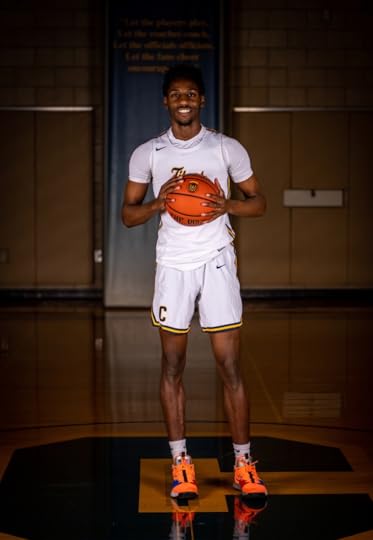
Cultures of Dignity: Tell us a little about yourself!
Chesimon: I am currently a senior at Louisville Collegiate School. I was born in Louisville and have lived here all my life. I play basketball and have been playing for 10 years. Aside from basketball I enjoy hanging out with my friends and family.
Why are you working with Cultures of Dignity this spring?
I want to be able to help the adults who influence student’s lives have a better understanding of students and ways that they can have a positive impact in their lives.
If you could have any superpower what would it be?
If I could have any superpower it would be to read minds. This would allow me to better understand the people around me when I feel confused or worried.
What projects will you be working on with Cultures of Dignity?
I will be helping with the Owning Up student to student project to help students become comfortable with healthy discussion between them and the adults in their school community.
What is an issue you see in schools you want to fix?
One of the many issues in school that I hope to fix through my work with Culture of Dignity is finding ways for adults to help students become more comfortable with their environment. Through past experiences, I have noticed that I perform better in school when I am comfortable talking with my teachers and peers.
Recent Posts
Meet Chesimon! Cultures of Dignity Intern
What Is Dignity?
Why Animating Dignity Became My Passion
Learn about how we work with young people:
STUDENT VOICE
The post Meet Chesimon! Cultures of Dignity Intern appeared first on Cultures of Dignity.
January 23, 2020
What Is Dignity?
Dignity is our way forward to build strong relationships.
We all grew up hearing that we should “respect our elders.” It’s a core value that unites across ethnicities, religions, countries and class. But, rarely do we hear about dignity, the essential worth and value of every human being.
Meanwhile, we have lost a meaningful definition of respect. Adults often feel that young people aren’t showing them the respect that they believe they deserve. Many young people feel that adults need to earn their respect. Why does it seem that we have lost basic respect for each other? How do we get it back?
The answer is right in front of us. At Cultures of Dignity, we ask young people what comes to mind when they hear the word “respect”, these are a few common responses:
Respect is supposed to be earned, but it’s usually imposed.
I have to obey them no matter how they treat me.
If they don’t respect me then I don’t have to respect them.
The Problem with Only Using “Respect”
Respect is admiration for someone’s actions, traits, or accomplishments. It is earned or lost through a person’s actions and behaviors. But respect is often used to force someone to comply or obey when they have more authority.
From the playground, to our locker rooms, work-places, our faith communities and halls of government, young people have good reason for their skepticism and reluctance to come forward and report wrongdoing. As long as we tell young people to respect others who are abusing power, they will be anxious, resentful and doubt the purpose of speaking out when they see something wrong. The constant parade of “elders” who abuse their position of authority and then demand respect weighs on the hearts and minds of young people. When we don’t admit what young people see, we appear to accept the hypocrisy, and we are helpless to stop it.
It doesn’t matter if you are 5, 12, 27, 80 years old we all know the feeling of being forced to respect someone and it makes us feel angry, confused, and powerless.
None of this is an excuse for young people to treat adults badly. But if we want young people to truly respect us we need to get clear about what the word means and shine a light on the power of dignity to guide our interactions with each other.
We partnered with Cognitive Media to bring the concepts of dignity and respect to life in this animated film. Cognitive specializes in taking complex concepts and transforming into powerful stories and ideas through illustration, storytelling and whiteboard animation. We loved working with them and hope we have the opportunity to do so again!
Let’s Stop Using the Word “Respect” and Use “Dignity” Instead
Dignity, the belief that all humans have equal worth and value, is the foundation of our work. Everyone has dignity. Everyone has the same amount. It cannot be earned or lost. Dignity is a given. It is an absolute. It is a non-negotiable right.
It may seem simple that everyone has essential value. However, the practice of using dignity to guide our interactions with each other is actually a radical shift. And while we are all born with dignity, we are not born knowing how to act in ways that honor everyone’s dignity, including our own.
Take a moment to remember an adult you respected when you were growing up. Your answer is most likely based on how that person treated you and others, not how successful or powerful they were. You respected them because they were treating others with dignity.
Using dignity instead of respect gives us a way new way to interact with each other. A way where we can recognize the person’s essential worth apart from their actions. This is where we get our courage to stand up for ourselves and have the tough conversations we so often shy away from.
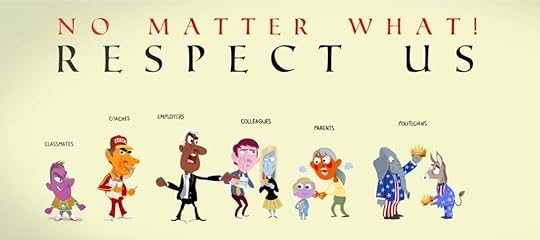
Children Are Not Broken
While it is true that we live in an increasingly anxious world, children are not broken. The systems that have traditionally supported them are increasingly challenged to meet their needs and support them effectively. Many of us; parents, educators, people who recognize that we are leaving our children an increasingly complex set of global problems, desperately want to contribute and collaborate with like-minded people.
Dignity Is The Path Forward
Dignity gives us the path forward to build the relationships with young people that we must have. Our schools depend on it. Our communities depend on it. And it all begins with young people believing in us and what we teach them. As Sorah G., a middle schooler shared, “Dignity gave me a new language to understand and analyze the interactions I had between my peers and to understand the world I live in.”
Resources
Whiteboard animation by WeAreCognitive
Founder of Cognitive Media, Andrew Park’s blog on animating dignity
More on the concept of dignity
Recent Posts
What Is Dignity?
Why Animating Dignity Became My Passion
Good Life Project: Queen Bees, Wannabes, & Cultures of Dignity | ROSALIND WISEMAN
The post What Is Dignity? appeared first on Cultures of Dignity.
Why Animating Dignity Became My Passion
By Andrew Park, Founder of Cognitive
Being a parent in any era has its set of challenges. The period of transition from child to a teenager doesn’t come with instructions and relying on one’s own experiences to guide you through the terrain are woefully inadequate and out of date. Couple that with living in an era when young people’s worlds are amplified by an all pervasive and 24/7 digital culture then we soon realise that we are all navigating in uncharted waters on a daily basis.
It happens so quickly, the transition from a ‘little girl’ to complex teenager, so much so that most parents are left scrabbling about for information and guidance on what is going on and also how to handle certain situations.
We had just moved to a new area and our pre-teenage daughter was dealing with the challenges of joining a new school and set of friends. It wasn’t before long that we were hearing stories of conflicts and squabbles daily. It wasn’t just our daughter, the whole year group seemed to be involved in a complex series of school-related social issues. The situation came to a head when our daughter became locked into an unhealthy rivalry with one girl and their related friendship groups.
My wife and I were keen to understand what was going on. There must be people going through these experiences elsewhere. It didn’t take long to find out that this, indeed, was the case. A few hours on the internet led us to the work of Rosalind Wiseman. Looking into the work she had done with girls and their friendship groups it was clear to see that she was the guiding light for us. We ordered a few of her books immediately.
Keen to help our daughter through this unsettling time we rapidly gobbled up the information. Reading Rosalind‘s book, “Queen Bees and Wannabees”, was like lifting a curtain on a world we didn’t know existed. I suppose it has a lot to do with the dissonance between who we understood our daughter to be at home and the behaviour she was exhibiting at school. When you also realise that this behaviour is amplified, because most of the girls in her year group were all possibly fulfilling one, or several roles that Rosalind defines in her book, we could understand why the teacher was looking frazzled. It’s a complex social hierarchy that has roles, rules and codes that are invisible unless they are revealed to you. These behaviours are far removed from our adult world and applying the same solutions we would employ in our world just don’t work.

Image from What Is Dignity? film by Cognitive & Cultures of Dignity
I am lucky to be able to help champion causes I think would be beneficial. The work we have made for the RSA has proved there is a global appetite for content that is rich in world-changing concepts, ideas, easily digested and shared. An appetite sated perfectly through whiteboard animation. I wanted to help animate some of the concepts in Rosalind’s book. If anything, to raise awareness for other parents and their children who might be going through the same uncomfortable and emotional journey. I found Rosalind’s contact details and sent her an email hoping to connect.
A lot of the work I do happens because I have a desire to understand the concepts and ideas that lay within. I like to think I am constantly at school and open to learning. Each project I work on has a tremendous amount of learning involved. I always find that if I must unpack information and reform it visually then I must understand those constituent parts enough to make the whole justified and valid for a virgin audience.
Rosalind responded to my message and we scheduled a conversation. I am sure she must have thought – who is this guy emailing me out of the blue and wanting to make an animation…what’s the catch?
Our conversation went well, and we agreed to make something together. Our initial thoughts were about making a whiteboard animation that would help illustrate the different worlds that young people and parents inhabit. It would be through highlighting those differences that a possible understanding could be reached.
During subsequent conversations I proposed to Rosalind that she should speak at the RSA. I suggested that it might be through that presentation that we found the content that we needed for our whiteboard animation. Fortunately, Rosalind was coming to Europe in the near future and so I introduced her to Mairi Ryan from the RSA events team and they scheduled in a talk at the Society. You can watch Rosalind’s “Creating Cultures of Dignity” here.
After a few more conversations we really started to hone down the message of what we wanted to animate. We eventually decided that we should pull the focus out and explore a larger and harder to grasp concept. A concept that Rosalind reports comes up time and again when she is working with people – the difference between ‘Respect’ and ‘Dignity’.
I must admit that it’s still a tricky concept to get one’s head around. The two words have been inextricably linked for so long that they have erroneously garnered the same meaning for a lot of people. In trying to explain the difference there could be no better place to start than, everybody’s friend, the dictionary.
Respect – comes from the Latin ‘Respectus’ – A feeling of deep admiration for someone elicited by their abilities, qualities and achievements.
Dignity – comes from the Latin ‘Dignitas’ – The state or quality of being worthy of honour.
Without trying to explain it any further, it might be good if you just watch the explainer animation. It uses the communicative and engaging strengths of whiteboard animation, and hopefully it’s a good primer for discussion. If you are someone working with young people, we would be happy if you used the film as a launch pad for discussion around these themes.
Resources
Whiteboard Animation by Cognitive
Rosalind Wiseman’s RSA talk
The RSA
More on the concept of dignity
Recent Posts
What Is Dignity?
Why Animating Dignity Became My Passion
Good Life Project: Queen Bees, Wannabes, & Cultures of Dignity | ROSALIND WISEMAN
The post Why Animating Dignity Became My Passion appeared first on Cultures of Dignity.
December 4, 2019
Good Life Project: Queen Bees, Wannabes, & Cultures of Dignity | ROSALIND WISEMAN
Listen to the episode:
From Good Life Project:
Teaching self-defense to young women in her late twenties, Rosalind Wiseman saw a world she never expected; one where girls and young women would destroy each other. Not physically, but emotionally and socially. And, it wasn’t okay with her. So, she stepped in, started to listen – really listen – not to adults, but to the young women, then all kids, and began to build coalitions in an effort to create better ways to be with each other. That eventually led her to write Queen Bees and Wannabees, a book that stormed onto the scene, rattled people to their core and started not just a conversation, but a global movement.
Wiseman has since devoted herself to helping communities shift the way we think about children and teens’ emotional and physical wellbeing. Through her teaching, speaking, curricula which is now taught in schools around the world, and media appearances on relational aggression, ethical leadership, the use of social media, and media literacy, she works with educators, parents, children, and teens to help them navigate the power dynamics that influence their lives and relationships. Seeking to scale the impact of her work to more people, she recently launched Cultures of Dignity, an organization that helps adults in positions of power support the children around them. But the journey has not been easy. And, we cover the highs, lows and in-betweens in today’s conversation.
Recent Posts
Good Life Project: Queen Bees, Wannabes, & Cultures of Dignity | ROSALIND WISEMAN
Standing Against Our Culture of Indignity
Freedom Writers Podcast – Rosalind Wiseman: Mean Girls, Masterminds, and the Realities of Adolescence
The post Good Life Project: Queen Bees, Wannabes, & Cultures of Dignity | ROSALIND WISEMAN appeared first on Cultures of Dignity.




